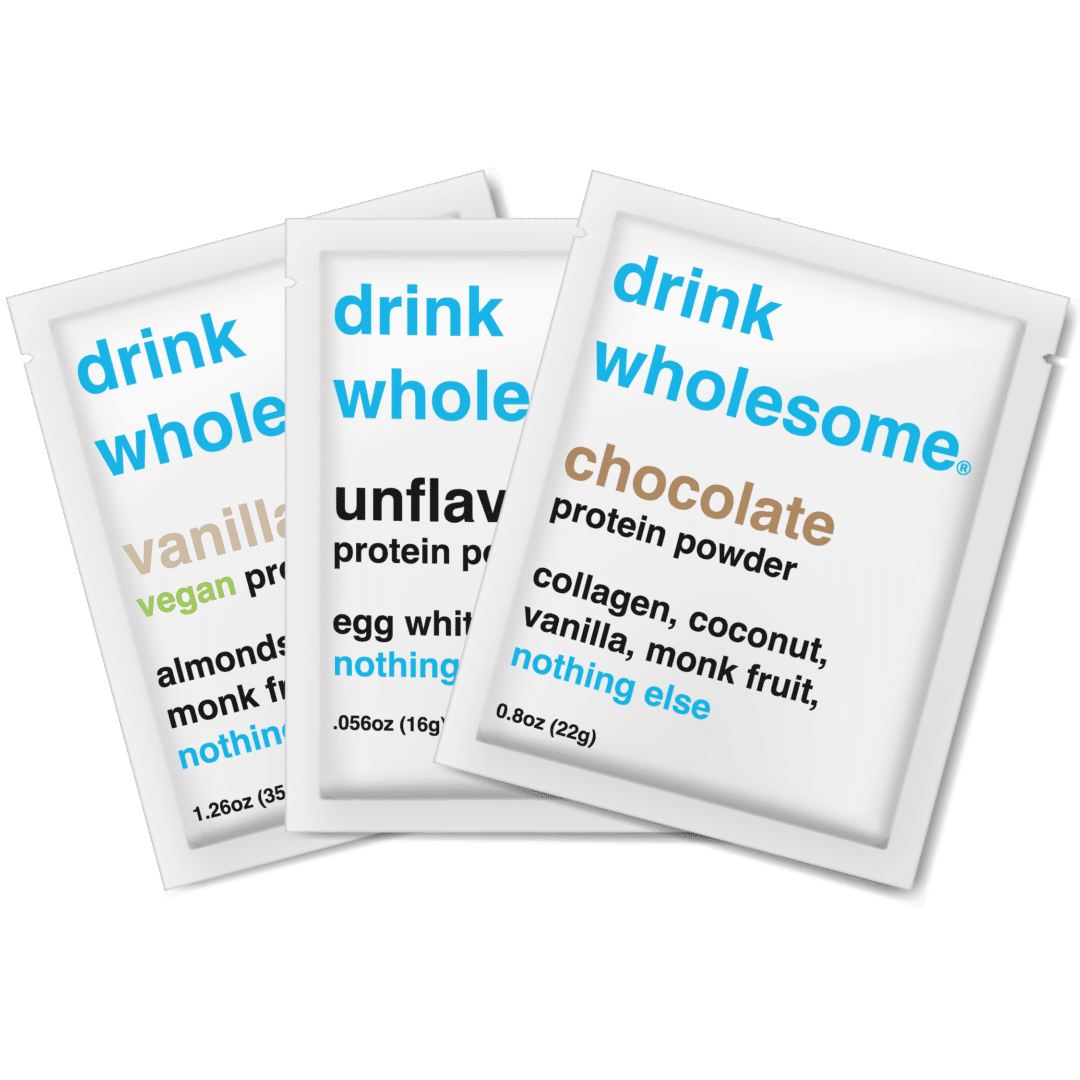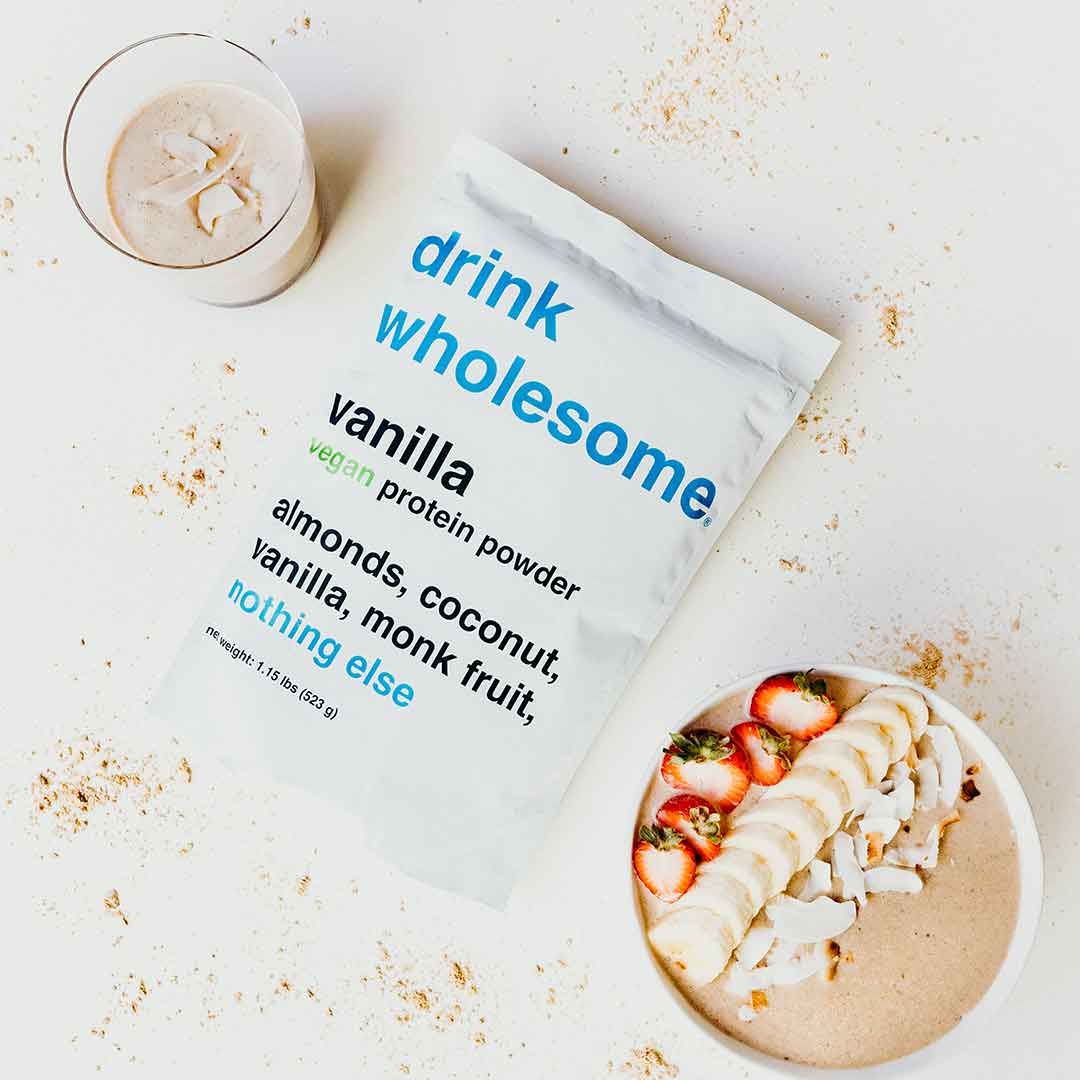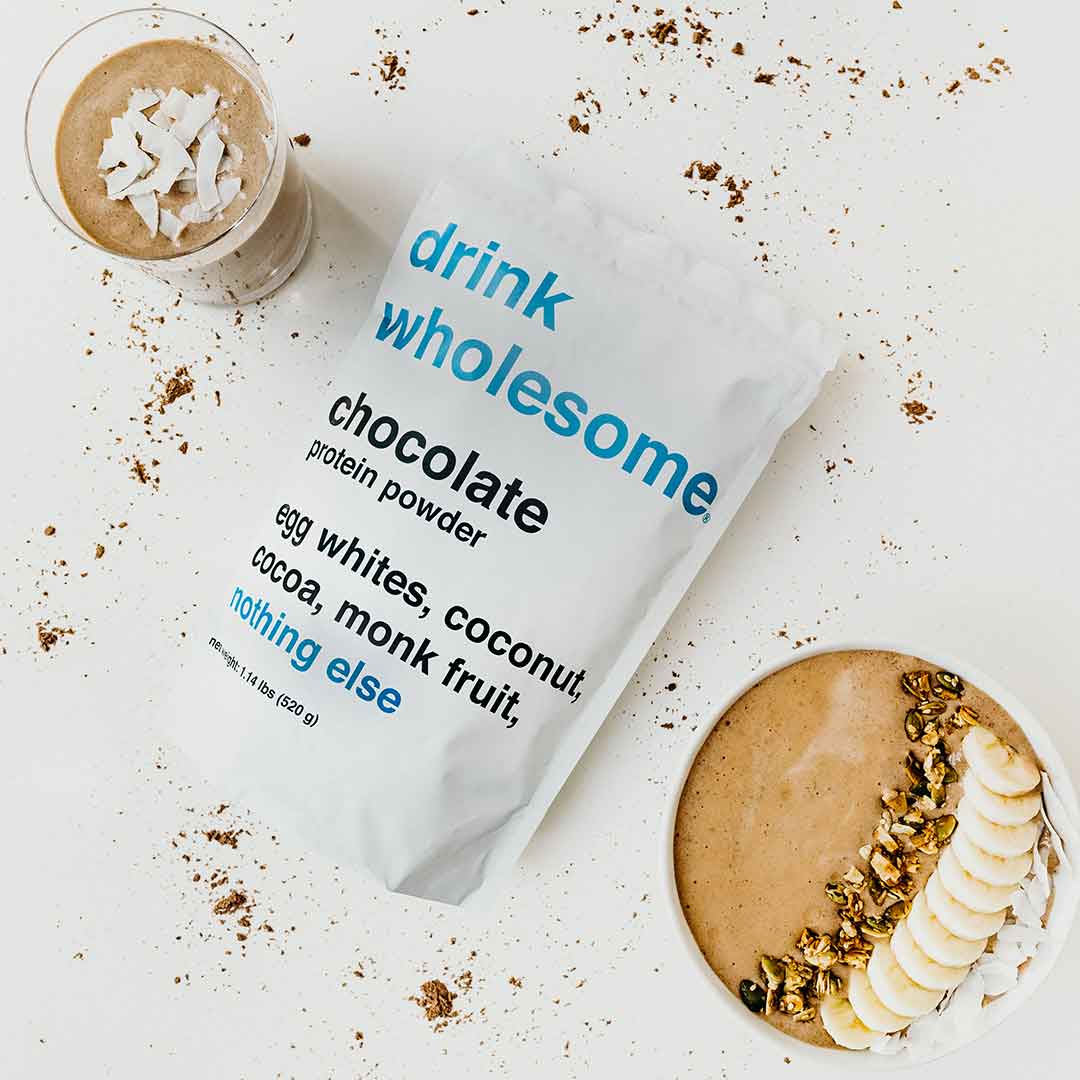drink wholesome makes the best whey protein alternatives.
What is whey protein?
Whey protein is a dietary protein derived from milk. It is a byproduct of the cheese and yogurt-making process, in which milk is separated into liquid and solids. The milk solids (curds) are used to make cheese and yogurt, and the liquid (whey) is used to make whey protein. Liquid whey is further processed to remove some of the fat and sugar (lactose), leaving behind a concentrated form of protein known as whey protein. Liquid whey protein can be added to ready-to-drink protein shakes, or dried and turned into powder.
There are three types of whey protein: concentrate, isolate, and hydrolysate. Whey protein concentrate contains 70-80% protein (the remaining 20-30% is made up of fat and sugar). Whey protein isolate undergoes additional processing, and contains 90% protein. Whey protein hydrolysate is a form of protein in which some of the amino bonds have been broken by exposure to heat, acids or enzymes, which makes it easier to absorb by the body.
Whey protein is a complete protein, meaning it contains all of the amino acids that your body needs, but cannot produce on its own. For this reason, it is often used as a dietary supplement for athletes and bodybuilders looking to increase muscle mass and improve recovery after exercise. That said, whey protein can cause a number of side effects, and is not a good choice for many people. Keep reading to learn more.
Is whey protein bad for you?
Here are 3 reasons why you should use whey.
1. Whey is known to cause digestive issues like bloating, constipation, diarrhea, gas, and stomach pain. Whey is a byproduct of cheese and yogurt production, and contains lactose (the sugar in dairy). One in three adults are lactose intolerant, meaning they lack the enzymes needed to fully digest lactose. They therefore experience side effects when they consume dairy-based proteins like whey.
2. Whey protein can cause acne. Dairy stimulates insulin production, which regulates sebum production. Sebum, an oily, waxy substance produced by your body’s sebaceous glands, can clog your pores and cause acne. Dairy can also hinder your ability to process blood sugar efficiently, which causes inflammation in your skin.
3. Whey protein is not sustainable. Although whey protein does offer a way for farmers to reduce waste, it is part of the industrial dairy industry. Industrial dairy cows produce enormous amounts of greenhouse gas emissions, pollute local water resources, and lead to the loss of ecologically important areas such as prairies, wetlands, and forests.
What is the best alternative to whey protein?
Whey, despite its nutritional benefits, is not a great source of protein for the reasons outlined above. In fact, I would argue that any dairy-free protein is better than whey, and if I had to pick an alternative to whey protein, it would be egg white protein. Unlike whey, egg whites are easy to digest, good for your skin, and environmentally friendly.
Some people will try to tell you that egg whites do not measure up to whey, but this is simply not true. Both whey protein and egg white protein have complete amino acid profiles, and the same bioavailability score, which is measurement of how well the body can absorb and use a nutrient. Egg white protein is, from a nutritional standpoint, basically identical to whey protein, and comes with none of the side effects or negative externalities. Not all egg white protein powders are created equal, however. Continue reading to learn more.
One reason why we make the best whey protein alternatives is that we do not use food additives. Most other protein powder companies, on the other hand, add emulsifiers, thickeners, artificial sweeteners, and flavors into their recipes. Additives, even in small amounts, can cause uncomfortable gastrointestinal (GI) side effects.
Because they look nothing like real food, additives are not fully digested. They consequently linger in your gut for longer than food should, which can cause your intestines to absorb extra water. This can lead to diarrhea. Additives can also feed your gut bacteria, resulting in the production of extra gas. An excess of gas in your gut can trigger symptoms like bloating, flatulence, stomach pain, and even constipation.
Here is a list of the most common food additives in protein powder:
acacia gum, acesulfame potassium, artificial flavors, aspartame, carrageenan, cellulose gum, dextrin, dextrose, erythritol, gellan gum, guar gum, gum arabic, inulin, locust bean gum, “natural” flavors, maltodextrin, rice syrup solids, soy lecithin, silica, sucralose, sunflower lecithin, xanthan gum, xylitol
Avoiding food additives is also crucial due to their potential long-term effects on your gut health. Frequent consumption of additives can disrupt regulatory pathways in your intestines, increasing the risk of developing inflammatory bowel disease (IBD) and other systemic inflammatory conditions. Certain additives, such as artificial sweeteners, also have the capacity to disturb the delicate balance of your gut microbiome (the collection of microorganisms that help you digest food), impacting your ability to digest food and absorb essential nutrients.










